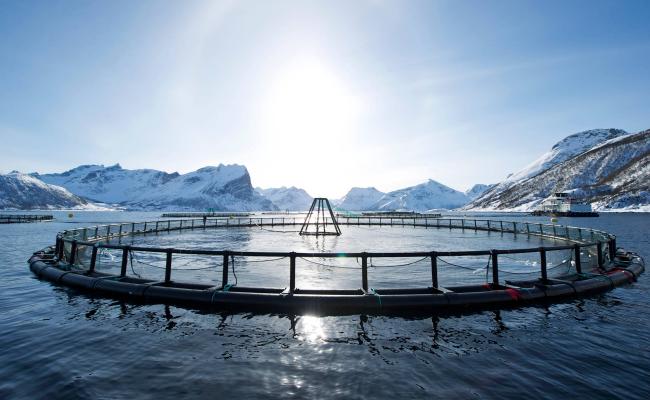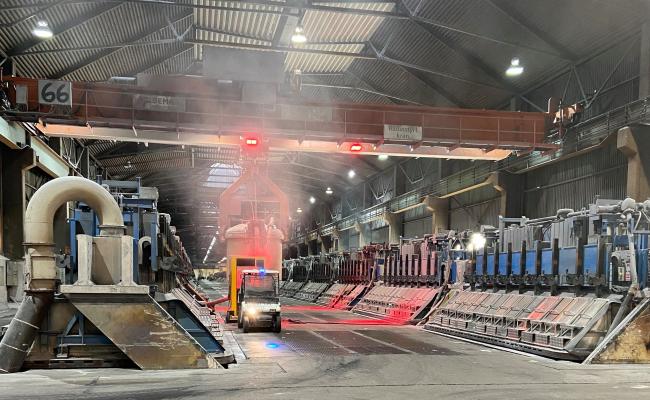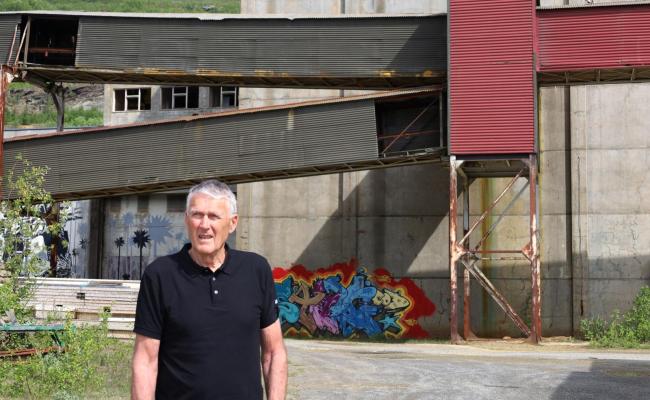Cornerstone Businesses Face Uncertainty Regarding EU Measures
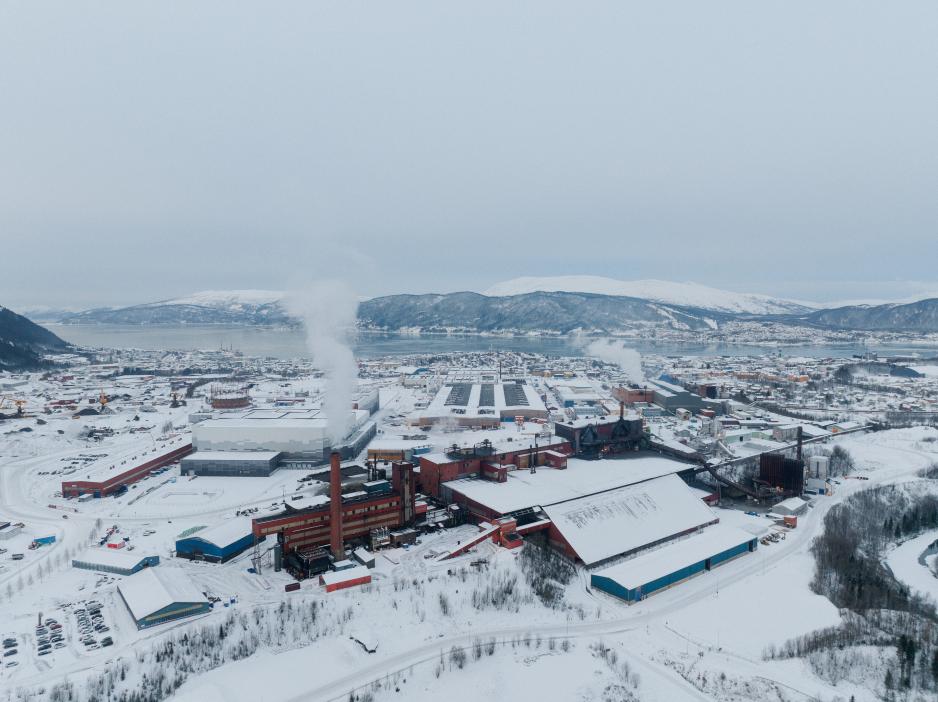
From Elkem's plant in Rana municipality. This plant has about 165 employees and is engaged in the production of ferrosilicon, an alloying metal used in steel production. The plant also produces silica that is used in the cement industry. (Photo: Einar Aslaksen).
It is still unclear whether Norway will steer clear of the EU's safeguard measures on alloy imports. For the metal industry in Northern Norway, limited market access to the EU may have big consequences.
Last week, the EU Commission presented proposals for new safeguard measures on steel. The commission a.o. wants to double the level of out-of-quota duty to 50 percent, as well as limit tariff-free import volumes.
The proposal, which must be approved by the European Parliament and the Council of the European Union, holds that Norway and the other EEA countries will not be subject to tariff quotas or duties.
Nonetheless, it is still uncertain whether Norway will evade the EU's safeguard measures for iron alloys, so-called ferroalloys, which could have big consequences for several businesses in Northern Norway.
May affect several companies in the North
Earlier this fall, the government called a crisis meeting, in which some of Norway's most important industrial companies participated, as reported by Aftenposten, among others.
Among the companies at the meeting were Elkem, Ferroglobe, Finnfjord and Alcoa. Several of these are large producers of ferroalloys in Northern Norway with the EU as their main market.
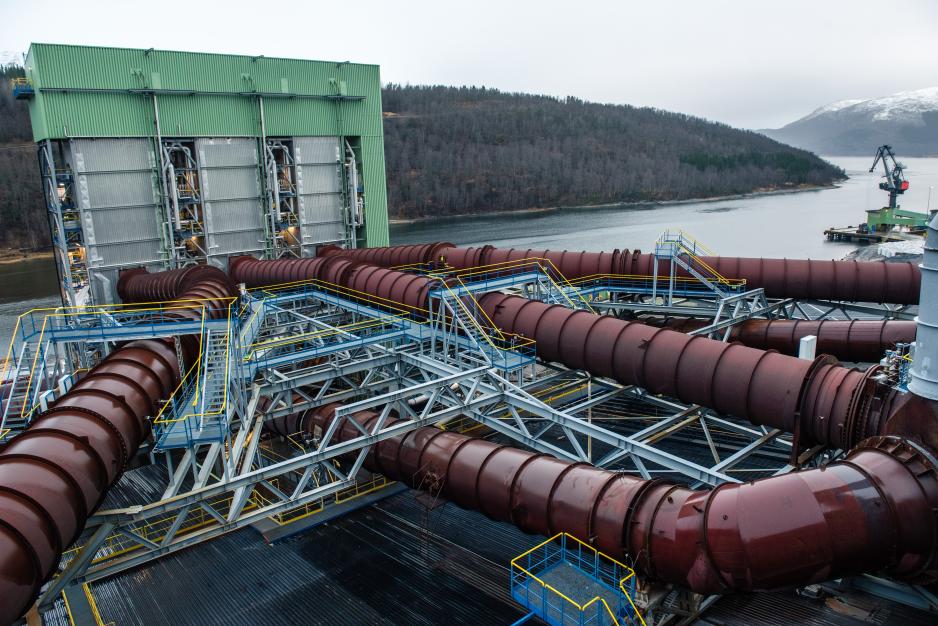
From Elkem's facility in Straumen, Northern Norway. Elkem Salten exports approximately 70 percent of its production to the EU. Chinese Bluestar is Elkem's largest shareholder. (Photo: Elkem ASA).
"Serious"
"If Norway ends up outside the safeguarding measures that the EU introduces, then that is serious," says Marianne Stigset, Vice President Corporate Communications and Public Affairs at Elkem, to High North News.
"Elkem recognizes the need to protect European industry from low-priced imports, but it is important that Norway and Iceland end up inside the tariff wall. We believe that it must be in the interest of both the EU and the EEA countries that we protect a common market and safeguard European value chains," she continues.
Large exports to the EU
Elkem produces ferrosilicon at its plants in both Rana municipality and Straumen in Sørfold municipality in Nordland, Northern Norway. Ferrosilicon is an important additive in steel production.
Approximately 75 percent of Elkem's silicon and ferrosilicon production in Norway is exported to the EU. In Elkem Rana's case, 90 percent of the production goes to this market.
"It goes without saying that it would have serious consequences if our market access to the EU is restricted," emphasizes Stigset.
Global overproduction
The EU steel industry is currently facing significant pressure from high levels of global overproduction, which is at more than five times the EU's annual steel consumption, writes the EU Commission in a press release.
In regard to ferroalloys specifically, European producers also face tough competition from countries such as China, Brazil and Kazakhstan, which are exporting ferroalloys at low prices, writes Metal Supply.
In December 2024, the EU Commission announced that it was launching a consultation to identify safeguarding measures for the import of alloys.
How would Elkem's plant be impacted if the safeguarding measures for iron alloys are implemented?
"That depends on whether the measures encompass us or not, as well as the composition of the measure. But if Norway is not included, it could lead to weakened prospects for our Norwegian plants."
She says plants like Elkem Salten would have to work hard to find new markets to sell their products to – at a time when the global market situation is challenging.
That said, Elkem is less vulnerable than many other players.
What other factors in international trade affect their production and sales?
"The market in general is affected by geopolitical unrest and trade conflicts, including the uncertainty surrounding US trade policy. This has contributed to weakening demand in some of Elkem's end markets," Stigset answers.
"Trade policy measures are more often used as tools in security and industrial policy. This creates challenges for Norwegian companies that are closely integrated into global value chains. That said, Elkem is less vulnerable than many other players because we have pursued a long-term strategy of building robust value chains that are regionalized. We also have a portfolio that is well geographically diversified, so we have flexibility in terms of where we sell from and to," she adds.
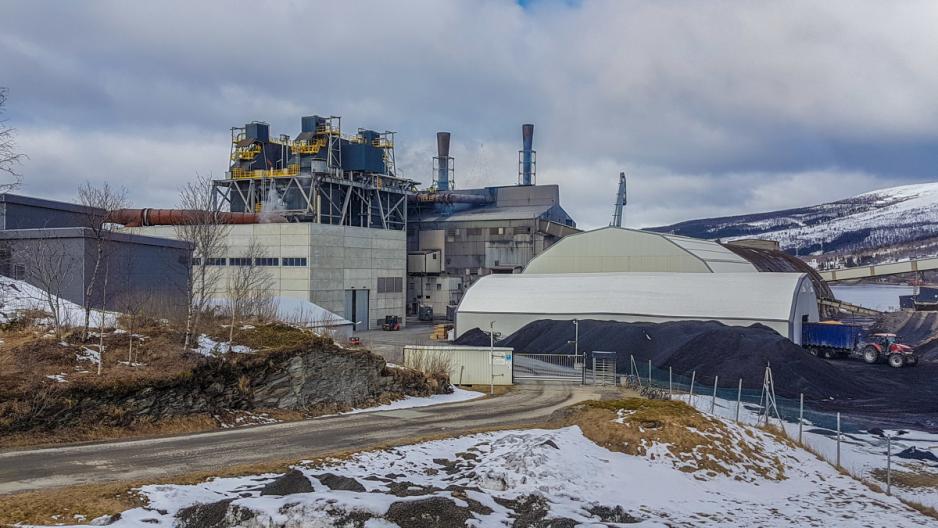
Finnfjord AS in Senja municipality is among the world's largest smelters for the production of ferrosilicon. (Photo: Tommy Hansen / UiT)
Unsure of the consequences
The possible EU measures for the import of ferroalloys could also have an impact on Finnfjord AS, operating a smelter for the production of ferrosilicon on Senja.
To Folkebladet, CEO Geir Henning Winterwoll says that the safeguarding measures could involve the introduction of a higher minimum price of 1,800 euros per ton of ferrosilicon.
Wintervoll is nonetheless uncertain what this would entail for the sales to the EU, which now comprises about 80 percent, but says it could mean that producers within the EU end up with an advantage.
The director also points out that an increased minimum price will not necessarily entail a decline for the company.
"If this increases the price, that could be good for us. It has to be bought from somewhere anyway, but how this combination will look is difficult to estimate," he points out.
"Crucial"
The Confederation of Norwegian Enterprises' (NHO) Acting Regional Director, Lars Fredrik Martinussen, says to HNN that Nordland is completely dependent on being on the inside of Europe.
"We have several large cornerstone companies that produce intermediate goods that the European industry needs, and a level playing field for Norway in this internal market is crucial for jobs and export industries in the North," he tells HNN.
"This issue has been of high priority for NHO. We have good dialogue with the authorities and know that the government also prioritizes this highly. We believe that EEA cooperation is a natural starting point for the negotiations. This agreement on equal framework conditions has been the basis for long-term investments and cooperation that have made Norwegian companies closely intertwined with European value chains. Thus, we must also be inside any safeguarding measures from the EU."



